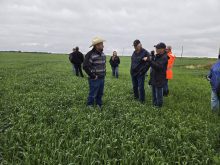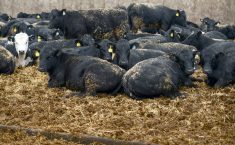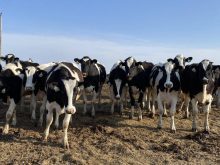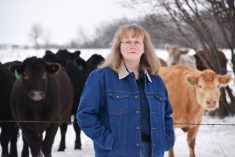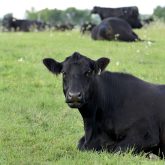Clear trade rules, measures to manage financial risk and access to sufficient workers are key issues among farm organizations that have released their positions for the Oct. 19 federal election.
The Canadian Federation of Agriculture, the Canadian Cattlemen’s Association, the Canadian Pork Council and Cereals Canada have all waded into the campaign with policy statements.
They urge their members to make their voice heard during the election campaign and to question the parties on key issues.
Voting matters, says Cereals Canada president Cam Dahl, a veteran of Parliament Hill. “There is an old saying in politics that policy is set by those who show up. Not always those with the best and brightest ideas and not even always a majority. The first and most important step on the road to being an influencer is to show up.”
Read Also

Manitoba sclerotinia picture mixed for 2025
Variations in weather and crop development in this year’s Manitoba canola fields make blanket sclerotinia outlooks hard to pin down
Agriculture issues will receive a public airing in a debate hosted by CFA, with sponsorship from Glacier FarmMedia. It will feature Agriculture Minister Gerry Ritz and the agriculture spokesmen Malcolm Allen of the NDP, Mark Eyking of the Liberals and Bruce Hyer, deputy leader of the Green Party.
“While the farmer constituency is relatively small, the economic activity it generates is significant — approximately $106.9 billion annually — and not to mention, it is largely responsible for putting food on Canadians’ plates each day. Our issues are not just farmer issues. What affects our industry, affects all of Canada,” said CFA president Ron Bonnett.
The top issues for CFA are correcting the chronic and critical labour shortages facing Canadian agriculture. “They are a major constraint on both agricultural growth and global competitiveness. Agriculture is a complex industry that faces unique workforce challenges due to rural depopulation and seasonal production of highly perishable products.”
Like the Pork Council and the Cattlemen, CFA cites better risk management as a key priority. “Agriculture is unique in the set of high risks it faces: volatile prices, unpredictable weather, and a global market influenced by government supports to producers in competing countries,” he said.
It also wants clear and effective rules from government for international and domestic trade.
The pork council says its members have “survived several financially challenging years, during which time infrastructure updates were put on hold,” says chairman Rick Bergmann. “Now that the financial footing of the industry has improved, producers face significant costs to catch up with construction and repairs.
“Canada’s hog producers are firmly focused on the future and building conditions for success. The CPC calls on the federal political candidates to develop a range of risk management tools and strategies to help producers deal with instability in the marketplace, including currency fluctuations, and to modernize the Canadian Agricultural Loans Act to accurately reflect Canadian agriculture’s growing farm sizes, increased farm costs, more complex farming structures and revenue and profit volatility.”
While cattle producers continue to receive excellent prices for their cattle due to tight global beef supplies and open markets, many feel constrained from expanding their herds, CCA president Dave Solverson said.
“Secure access to high-value and growing markets and policies that ensure the competitiveness of Canadian producers are the key to keeping the good times rolling. Investment in research and sustainable practices are major priorities for the Canadian beef sector,” he added.
Access to sufficient labour to work on farms and to process the meat is a critical issue that needs to be alleviated, he noted. With insufficient numbers of Canadians willing to take these jobs and insufficient access to immigration, increasing numbers of live cattle will leave for processing in the U.S. and Canada will need to import more food.
Dahl says another key issue is research and innovation and encouraging broad research partnerships between producers, governments and private companies.
Support for science-based regulations goes hand in hand with support for innovation and assuring access to markets, he noted. “Modern Canadian agriculture depends on clear and predictable science-based regulations for the crop input tools you use, from seed to fertilizer and other crop inputs.”







